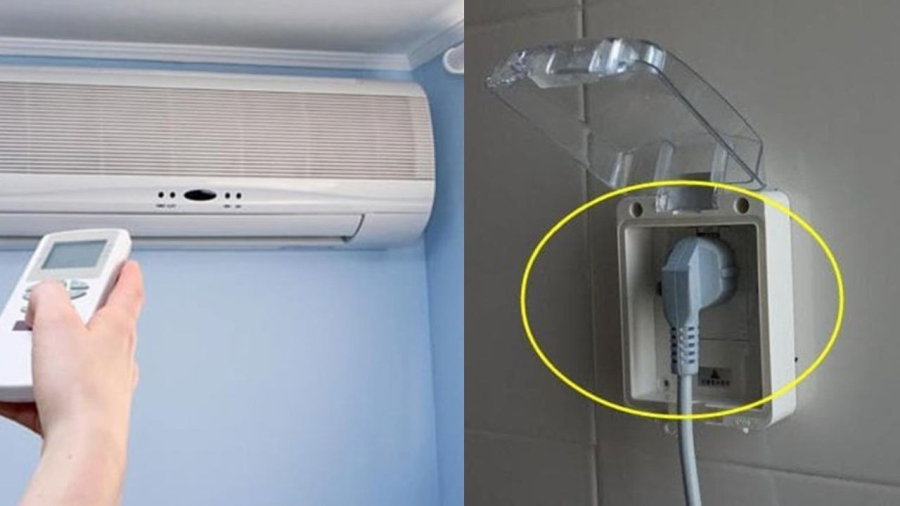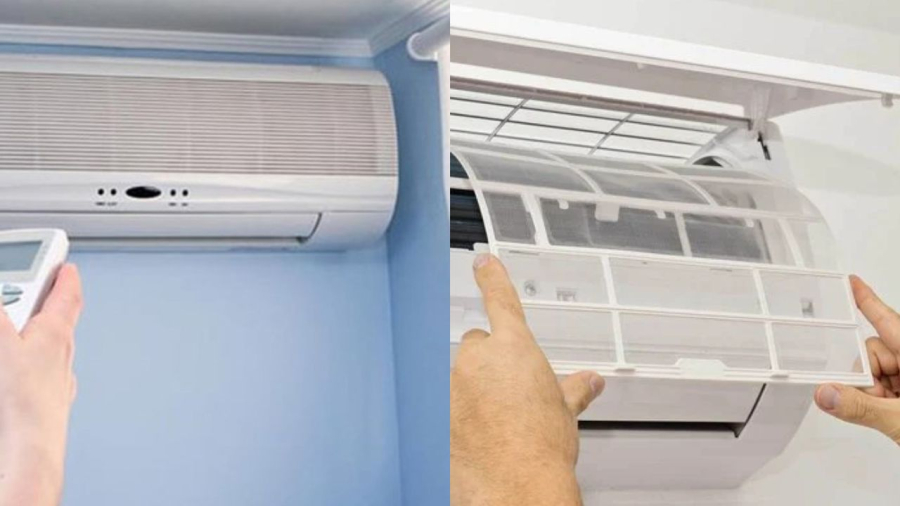Air conditioners are commonly used in the summer. Dual air conditioners are also used in the winter during cold days. However, in most parts of Vietnam, especially in the winter months in the northern region, air conditioners are hardly needed.
Usually, we only use the remote control for air conditioners and do not touch the power plug. So when we use the air conditioner less frequently and it is idle for a long time, should we unplug the power cord?

Most of us do not have the habit of unplugging the power cord for air conditioners and only turn them off with the remote control. Whether this is advisable or not.
The correct approach recommended by electrical experts is to unplug the power cord or turn off the power switch to the air conditioner when it is not used for many days.
In case we only turn off the air conditioner with the remote control without unplugging the power, it will cause the following effects:
Wasting electricity
Even though we don’t use the air conditioner, if the power is still connected, the device is in standby mode, so it still consumes energy. Sometimes we will see the light still on, which means it is still consuming electricity. Although the amount of electricity consumed in standby mode is not much, if it is left for a long time, it will still cost you some money. If your house has multiple air conditioners, it will cost even more. Therefore, when not using the air conditioner for several days or more, it is recommended to turn off the power supply to the air conditioner instead of just turning off the switch.
Increased electrical hazards
Electricity is an essential source of energy for our lives. However, it also carries many risks. Especially when the power plugs are always active and unfortunately there is a thunderstorm, the electricity can become unstable, causing sparks, fires, and safety hazards. Therefore, when not using the air conditioner, for the safety of your family, it is best to unplug the power plug, especially when you are away from home regularly.

Reduced lifespan of the air conditioner
Inside the air conditioner, there are many components, electronic circuits, so if the power plug is not unplugged, these components will always be powered on. Operating for a long time will damage the components, not only reducing the lifespan of the machine but also causing significant dangers.
Therefore, when not using the air conditioner for an extended period, it is advisable to unplug the power cord or turn off the circuit breaker to the air conditioner during this time, not only for the maintenance of the air conditioner but also to ensure the safety of everyone in the family. Before that, you can also perform preliminary inspection, cleaning, and maintenance for the device. When reusing it, you should also check it again before use.
In addition, air conditioners, after a long period of non-use, can accumulate bacteria and dust. Therefore, before reusing it, you should check for cleanliness and safety. The components of the air conditioner need to be cleaned before use in the new season, such as the external filter for the indoor unit, the outdoor unit, and the gas supply part on the inside. These are the parts that directly affect the cooling capacity of the air conditioner. Only with this, the equipment will operate efficiently, safely, and ensure its lifespan.
So remember to unplug the power cord when you are not using the air conditioner for a long time. If it is only for a few days, it is okay not to unplug it.
5 Strategies to Help You Cut Down on Microwave Oven Electricity Usage
Are you looking to make sure your microwave is as energy-efficient as it claims? We have some helpful tips that will help you not only save energy, but save money too! Our research found that not all microwaves with energy-saving claims actually use less electricity – but don’t let that discourage you! Keep reading to discover how you can maximize energy efficiency and start saving money!



































